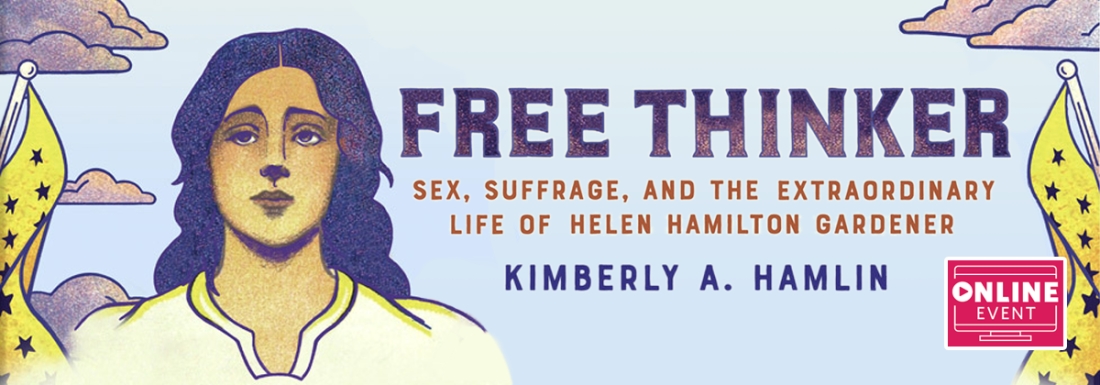At 23, while serving as the youngest school principal in the state, Alice Chenoweth was excoriated in Ohio’s newspapers in 1876 for having an affair with the state’s married commissioner of common schools. Rather than retreat in shame, she changed her name, moved to New York City, and spent the rest of her life challenging the double standards of gender.
Helen Hamilton Gardner emerged as a key figure in the fight for women’s voting rights and, in the words of a fellow suffragist, “the most potent factor” in the passage and ratification of the 19th Amendment in 1920.
Marking the centennial of that equal rights milestone, award-winning historian and author Kimberly Hamlin examines the life and immense influence of the “Harriet Beecher Stowe of Fallen Women” in a discussion of her book Free Thinker: Sex, Suffrage, and the Extraordinary Life of Helen Hamilton Gardener. As a writer and lecturer, Gardener crusaded for divorce reform and raising the age of sexual consent for girls (which in her time was 12 or younger in 38 states). She decried double standards of sexual morality and debunked scientists’ claims that women’s brains were inferior.
Most importantly, she got the ear of President Woodrow Wilson and other male politicians on the issue of granting women the right to vote.
Hamlin is an associate professor of history and global and intercultural studies at Miami (Ohio) University whose research on women, gender, science, and politics has been featured in media outlets including National Public Radio and Vice.

